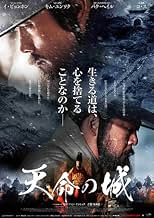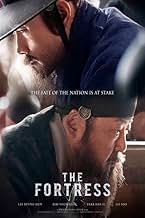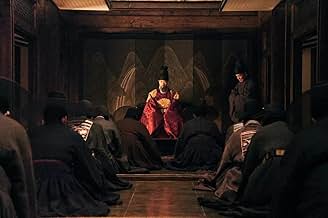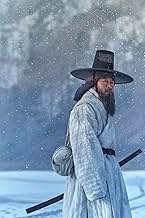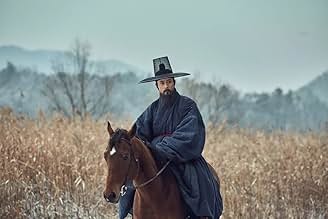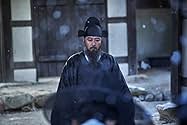NOTE IMDb
6,8/10
3,9 k
MA NOTE
En 1636, le roi Injo se cache dans les montagnes pour échapper à la dynastie Qing.En 1636, le roi Injo se cache dans les montagnes pour échapper à la dynastie Qing.En 1636, le roi Injo se cache dans les montagnes pour échapper à la dynastie Qing.
- Réalisation
- Scénario
- Casting principal
- Récompenses
- 21 victoires et 28 nominations au total
Avis à la une
80U
Surprisingly good Korean history flic. Very good performance by the actors. No overacting. No trash. No cringe. Characters are well drawn. The script well written, featuring the predicament of the main protagonists. But note! if u want battle action, please opt for Lord of the rings or Avengers Endgame. Sry no offense. This is more a political movie!
This film recently came up on NowTV and thought would give it a try without knowing anything about it. Very glad that I did! If you think you would enjoy an insight into a brutal period of medieval history not well known in the west with a mix of realistic battle scenes and court intrigue (and you don't mind subtitles) then I could recommend this. Central to the story being the kings aides who have differing advice for the King on how to deal with the invading Chinese army against a backdrop of a society with very distinct rich and poor divide where honour is sacrosanct. The film captures well the bleak remote location of the fortress while the combat is refreshingly devoid of the extensive use of cgi.
Josean (Korean) King Injo (Park Hae-il) is being attacked by the Qing, led by the Khan. He retreats to a mountain fortress in deep winter, and listens as Interior Minister Choi (Lee Byung-hun) argues with the Prime Minister (Sung Hyun-soo) about whether to negotiate or fight. Meanwhile, the fortress villagers and soldiers, including blacksmith- turned-recruit Nal-soe (Go Soo) and his brother are slowly starving and freezing to death, and it is turning out to be a long, long winter.... This film is based on Korean history in the 17th Century, when China ruled much of the peninsula and in turn was being menaced by the Qing, the forces of Genghis Khan's empire. Overall, "The Fortress" points out the futility of war and, a bit unexpectedly, also that life in the end will prevail (just not for everyone). The film is quite long at about 2 1/2 hours, but it's beautifully drawn and especially interesting to see in the middle of a very hot summer; all the scenes of snowstorms made me feel a tad chilly, even!
The Fortress is a good historical war movie. The portrayal of the 2 sides seems historically accurate. It paid attention to details. A huge feat this movie accomplished is that the Qing side speaks Manchu instead of Korean or Chinese, as Manchu is an almost extinct language today. This fact alone bring immersion into the world of 1600s.
The movie, while showing a major historical event, and portraying from the Korean perspective, attempts to take no side emotionally from the 2 warring parties. There's no demonizing of the Qing forces or glorifying of the Korean resistance. This brings more universality in the story line.
Great movie for history buffs.
Enjoyed this as it's not black and white morally and you genuinely don't know where it's going. A bit of a gem actually.It's quite brutal in parts but not gratuitously as it is about a very desperate battle.
Meilleurs choix
Connectez-vous pour évaluer et suivre la liste de favoris afin de recevoir des recommandations personnalisées
- How long is The Fortress?Alimenté par Alexa
Détails
Box-office
- Montant brut aux États-Unis et au Canada
- 252 895 $US
- Montant brut mondial
- 28 645 448 $US
- Durée
- 2h 20min(140 min)
- Couleur
- Mixage
- Rapport de forme
- 2.35 : 1
Contribuer à cette page
Suggérer une modification ou ajouter du contenu manquant



